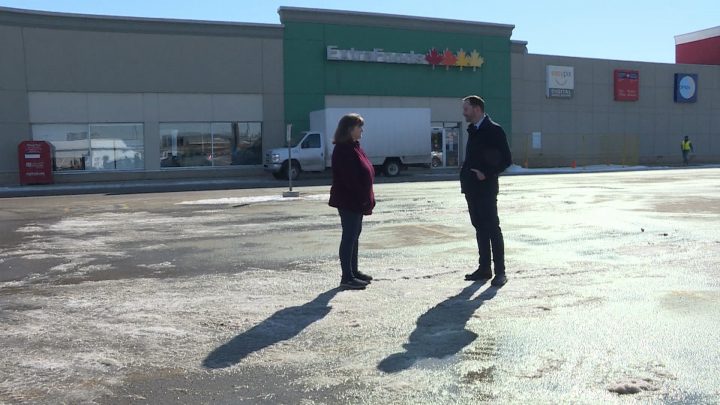While the public is being urged to stay home during the COVID-19 pandemic, there are some people still needing to work.

Saskatchewan NDP Leader Ryan Meili called on the provincial government to have more protective measures in place to help frontline workers continue to work in a safe environment.
These workers include health care workers, pharmacists, cleaners and grocery clerks.
“Every company is trying to figure out how to do this, but everyone is making it up as they go along, just basically doing their best guesses,” Meili said at a press conference on Thursday.

Gail Mack works at a grocery store in Saskatoon. She said her store has some measures in place, but thinks provincial guidelines — like having a set number of customers allowed at a time — would be beneficial.
“When you have too many people in the store, which I have definitely seen, there’s not enough room for people to line up and be safe,” Mack said.
Meili also said access to child care and other supports would help essential workers feel stability as they keep working.
Questions about COVID-19? Here are some things you need to know:
Health officials caution against all international travel. Returning travellers across Canada are legally obligated to self-isolate for 14 days, beginning March 26, in case they develop symptoms and to prevent spreading the virus to others. In Saskatchewan, international travellers are already required to self-isolate for 14 days upon their return to the province.
Symptoms can include fever, cough and difficulty breathing — very similar to a cold or flu. Some people can develop a more severe illness. People most at risk of this include older adults and people with severe chronic medical conditions like heart, lung or kidney disease. If you develop symptoms, contact public health authorities.
To prevent the virus from spreading, experts recommend frequent handwashing and coughing into your sleeve. They also recommend minimizing contact with others, staying home as much as possible and maintaining a distance of two metres from other people if you go out.
For full COVID-19 coverage from Global News, click here.



Comments